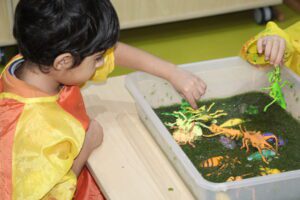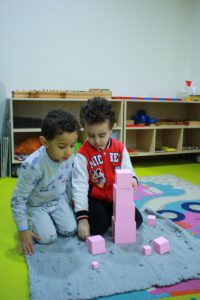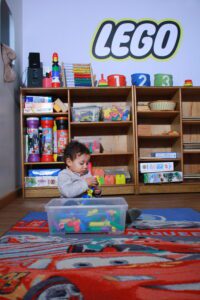Messy play, often seen as an activity involving paint, sand, mud, or dough, offers much more than just fun—it plays a crucial role in a child’s development. Here’s why it’s essential for developing fine motor skills, creativity, and problem-solving abilities:
1-Fine motor skills:
Messy play helps children refine their fine motor skills, which are essential for tasks like writing, buttoning shirts, or using utensils. Manipulating materials like playdough, molding clay, or squeezing paint requires precise hand movements, strengthening the small muscles in their hands and fingers. These activities improve hand-eye coordination and dexterity.
2-Creativity:
When children engage in messy play, they are free to explore and express themselves in open-ended ways. Whether it’s creating a sculpture from mud or mixing colors to paint a picture, they practice imagining and experimenting, which boosts creativity. This unrestricted play fosters original thinking and allows children to discover their unique artistic voices.
3-Problem-Solving:
Messy play is inherently filled with challenges. As children manipulate materials, they often encounter obstacles—like figuring out how to make a tower stay upright or how to mix two colors without making a mess. Through trial and error, they develop problem-solving skills and learn how to think critically and adapt to situations. This process teaches them resilience and the importance of persistence.












One Response
I find myself at a loss for words to describe how deeply this resonated with me. It’s not every day that a piece of writing moves beyond the surface to touch something profound and unspoken. You’ve managed to do exactly that — to reach beyond the usual layers of thought and offer something that feels real, true, and deeply meaningful.